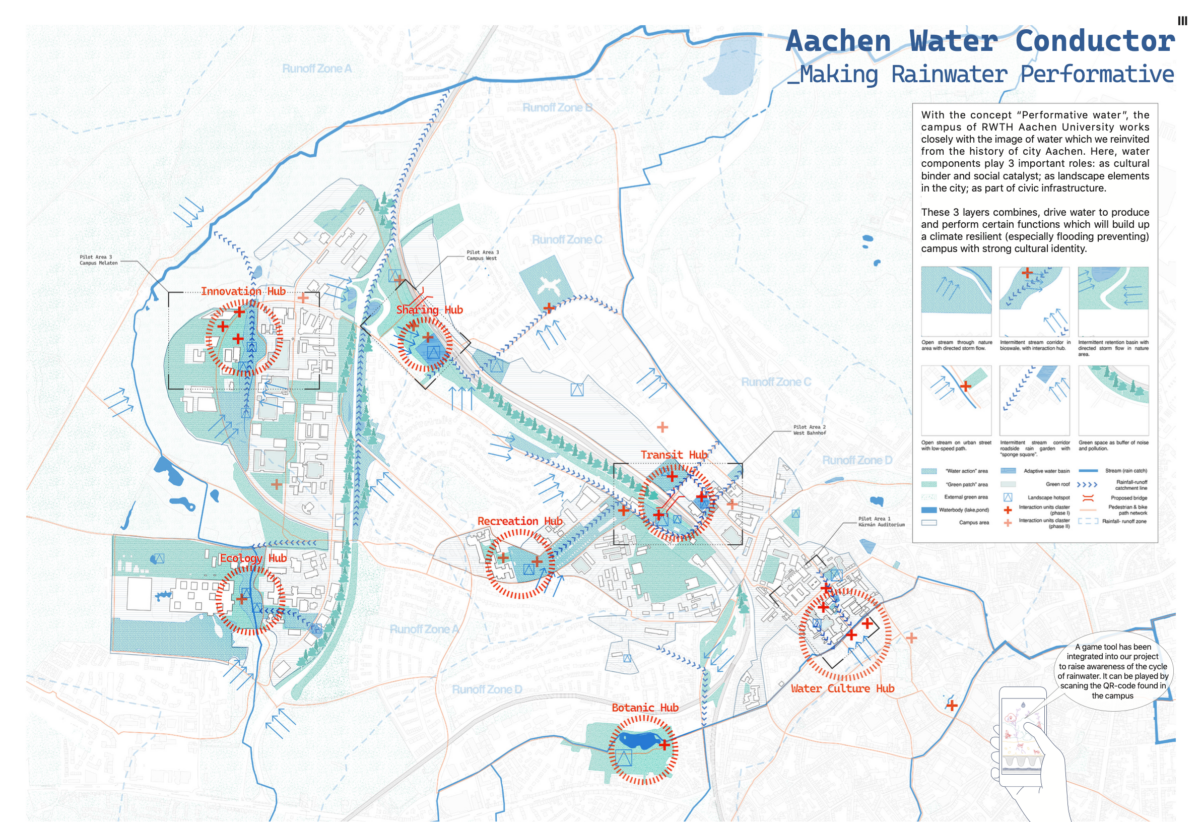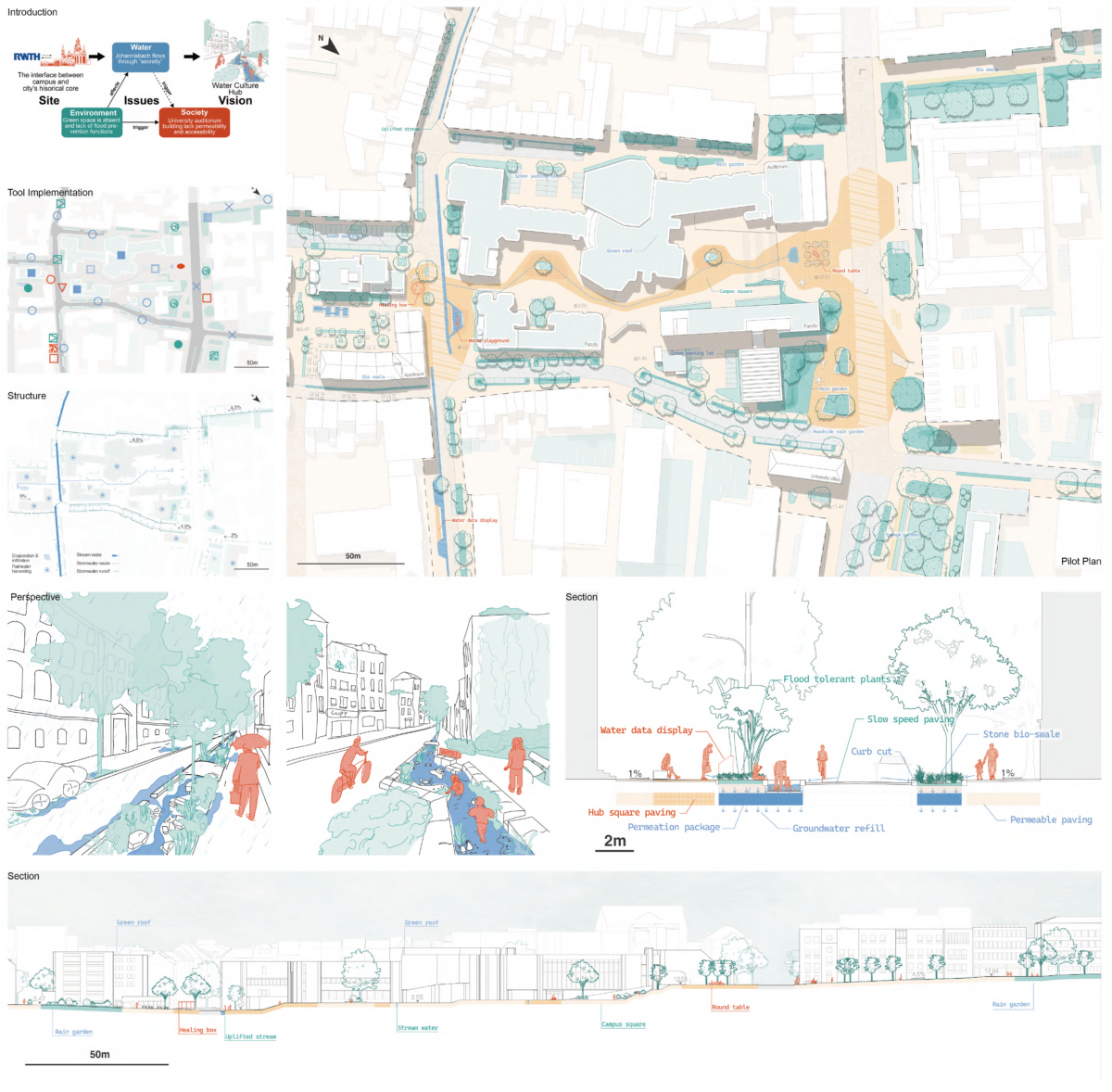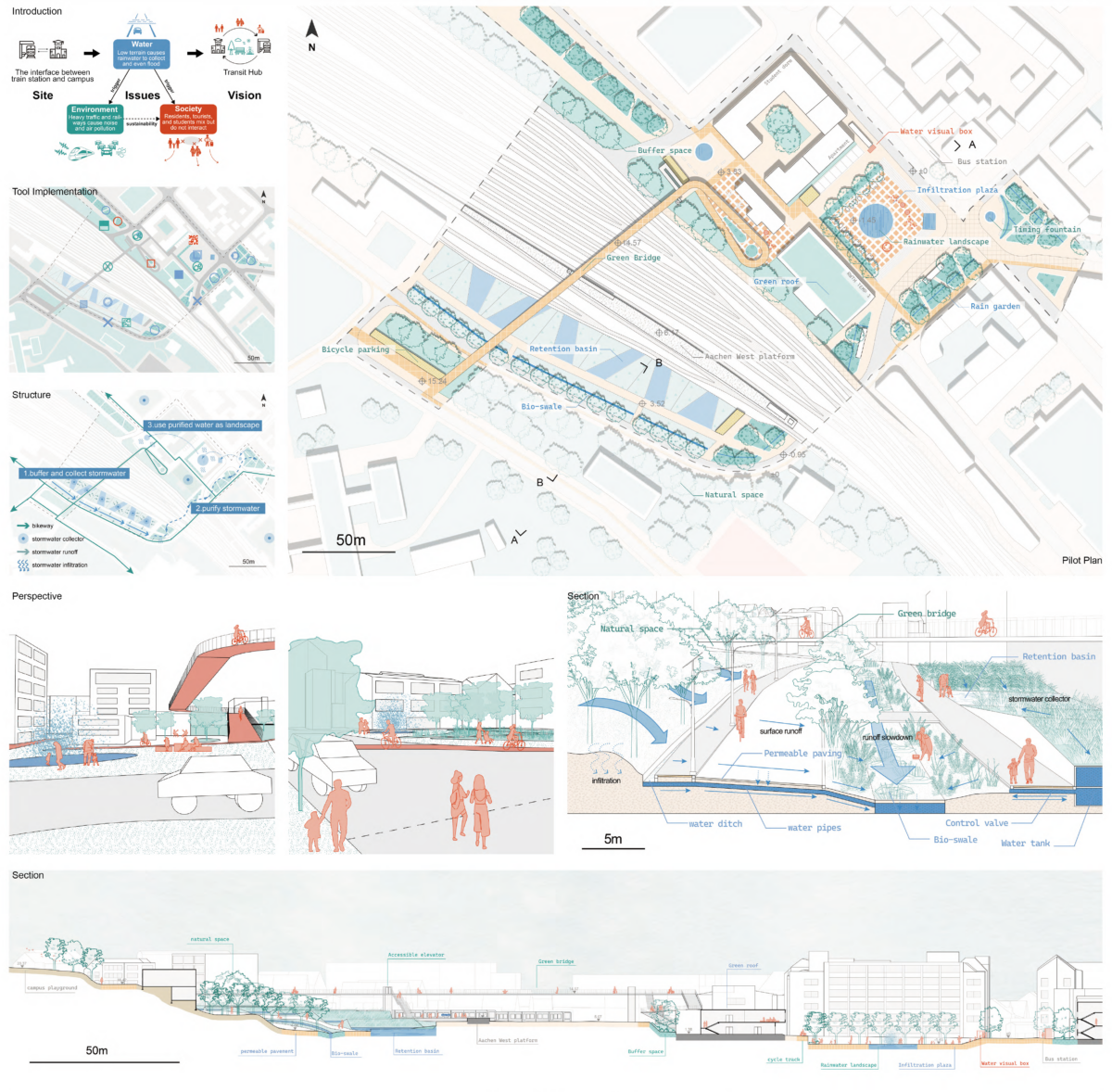Aachen Water Conductor: making water performative at RWTH Aachen University campus
Student Project: Integrated Project II Sustainable university campus transition and serious gaming
Mebrure Ezgi Ismar, Liyuan Ma, Zhiran Li, Jinyu Zhu
2022 Summer Semester
The Aachen Water Conductor master plan reimagines the RWTH Aachen University campus with a focus on environmental and social sustainability. Using the concept of “Performative Water,” the project integrates water management into the campus’s cultural, infrastructural, and landscape elements. This approach aims to create a climate-resilient campus that serves as a social catalyst and civic asset, enriching its cultural identity.

This project reimagines RWTH Aachen University’s campus and the surrounding city as a model for climate resilience and social sustainability. Given Aachen’s high water usage, combined drainage systems, and vulnerability to extreme rainfall, our approach focuses on sustainable water management while enhancing campus identity and community connection. Additionally, RWTH and Aachen’s shared goals for climate neutrality by 2030 provide a foundation for collaborative efforts.
Centered on “Performative Water,” our strategy has three pillars: Water Action, Green-Blue Network, and Public Interaction. Water Action addresses flood control by dividing the campus into drainage zones and implementing green infrastructure like rain gardens, permeable paving, and green roofs. The Green-Blue Network creates public spaces that integrate water and green spaces, bringing hidden streams to the surface and forming recreational areas. Public Interaction engages people through water-focused spaces and educational tools, including a game that teaches players about sustainable water cycles.
Our master plan targets four pilot sites, each serving unique needs. The Water Culture Hub near the historic core revitalizes the Johannisbach stream as a recreational space; the Transit Hub manages rainwater at West Train Station, using bio-swales and a water plaza to improve connectivity; the Sharing Hub links campus with nearby neighborhoods; and the Innovation Hub transforms Campus Melaten into a site for experimental water management.
Together, these initiatives aim to make RWTH’s campus environmentally sustainable and culturally connected to Aachen’s heritage.





